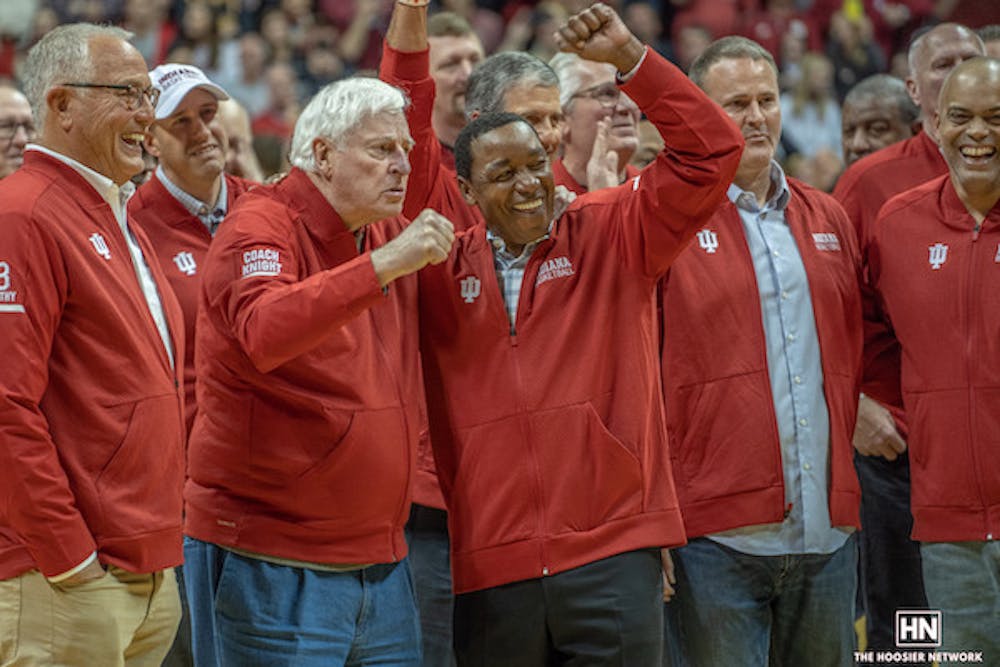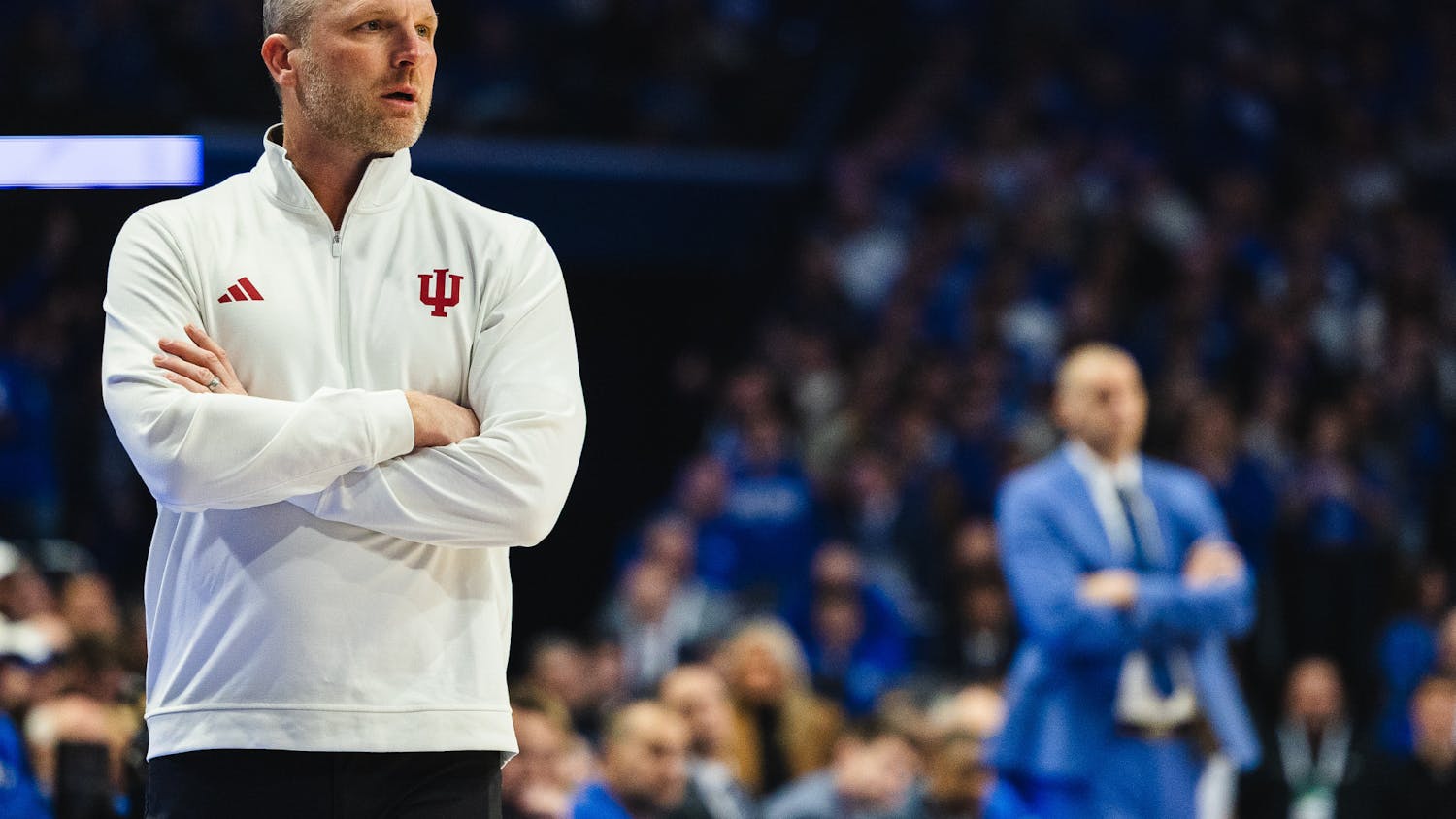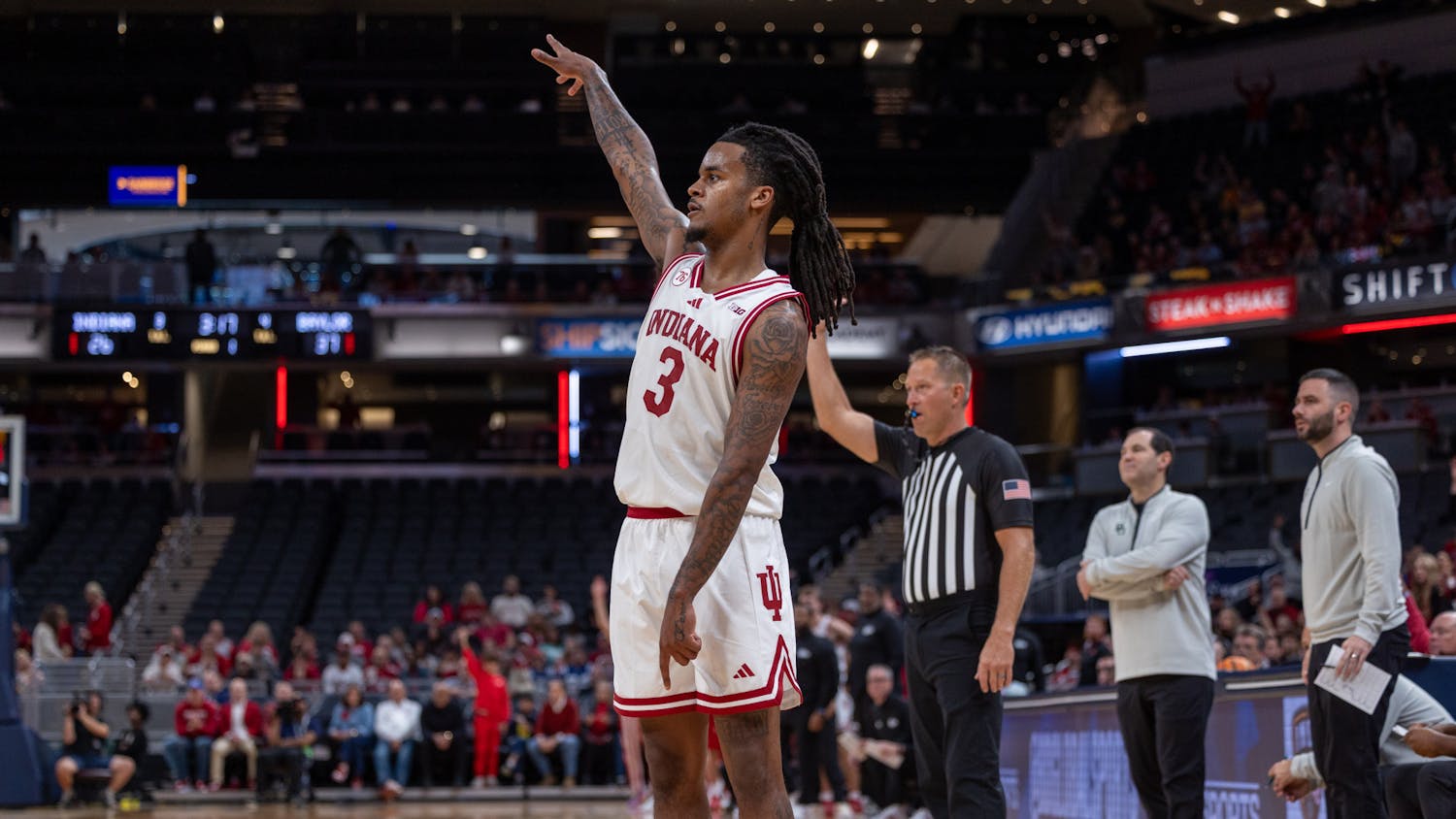Mike Woodson ended practice like usual on Wednesday. He went to steam and shower when team athletic trainer Tim Garl told him the news. Bob Knight had passed away.
Surrounded by friends and family, the Indiana basketball legend passed away in his home after dealing with severe health issues over the last couple of months. He was 83.
Knight molded Woodson from a young age. Knight came to Woodson’s house while recruiting him and promised two things — an education and a chance to play for the best basketball program in the nation. Woodson played for Knight for four years. Knight attended at least one of Woodson’s NBA games for the 11 years he was in the NBA. Knight made the call that landed Woodson his first coaching job. Knight pulled a kid who was the youngest of 12 and turned him into a gold medalist, NBA player and now a coach himself.
“This program will truly miss an icon,” Woodson said. “It's hard to really describe in words what he meant to me, but boy, I wouldn't be sitting in this seat today if it wasn't for Bob Knight.”
Woodson’s is only one of the lives that Knight shaped.
Knight’s story began in the next state over in Ohio. That is where he began his basketball career. Knight earned a varsity letter in baseball, football, and basketball at Orrville High School. From there he went on to play basketball at Ohio State, where he got his first taste of a national championship title in 1960. Although not the best player, little did he know he would end up with the most national titles of anyone on that team.
After college, Knight enlisted in the Army, accepted a coaching position at West Point, and quickly became the youngest coach in Division I history at 24. Over six seasons at West Point, Knight went 102-50 and led the school to four trips to the National Invitational Tournament (NIT). It was clear that Knight was destined to become a coaching star.
From West Point Knight went to Indiana University, where he would reside for the next 30 years and change basketball forever.
Knight’s time as coach at Indiana University was nothing short of legendary. From 1971-2000, Knight led his teams to three national titles, 11 Big Ten championships, and five Final Fours. His 1975-76 team remains the last Division I team to go undefeated (32-0). Not only on the court was Knight successful, but had a graduation rate of 98%. Knight himself was four-time National Coach of the Year and five-time Big Ten Coach of the Year in addition to being inducted to the Naismith Basketball Hall of Fame, College Basketball Hall of Fame and the IU Athletics Hall of Fame.
Knight had become a symbol of Indiana. He was admired across the country for his accomplishments, but what he was in Indiana was nothing short of a god. However after 30 years of antics, it was proven that Knight was in fact mortal.
Knight’s brand was simple: a red sweater over a collared shirt and a red-hot temper. A temper that no one was immune from whether that be players, coaches, referees, fans, anyone. Thousands witnessed Knight’s physical and verbal aggression on the sidelines every season.
One of his most notable performances came against Purdue in 1985. After drawing a technical foul, Knight threw a chair across the floor in the direction of a Purdue player.
In 1988 Knight said in an interview with NBC’s Connie Chung, “I think that if rape is inevitable, relax and enjoy it,” later saying that he was taken out of context.
Throughout the controversies, Knight was winning. He was attracting students from all across the world to attend the university not to play basketball but just to have the opportunity to say they went to Bob Knight’s Indiana University. That satisfied the boosters and alumni.

Players had come and gone through the program for over 30 years, alleging good and bad about Knight. No one wanted to believe the bad. Even when Neil Reid came out and publicly claimed that he had been choked by Knight the death threats were directed towards him, not Knight. The University brushed off the claims until tape came to the surface capturing the incident.
In May 2000, Indiana University president Myles Brand gave Knight one last chance under a “zero-tolerance” policy. Knight did not adhere to the “zero-tolerance” guidelines and on Sept. 10, 2000 was fired.
"People change over the years, and that changes situations, for good and for bad, but don't let the student body, the energy, the enthusiasm the student body has had for basketball, please don't let that change,” Knight said addressing the student body one last time in 2000. “If you want to do something to remember me by, do that. Continue the same energy, the same enthusiasm the students before you have given to basketball. I'll be very proud of you for doing that."
After that statement Knight publicly criticized and condemned the university and would not return to Bloomington until February 2020, where he was welcomed with open arms. Knight went on to coach at Texas Tech until 2008, finishing with a final record of 902-371.
Although his ways were not the most endearing and it did not seem like it all of the time, Knight wanted what was best for his people.
“He does things for people that most people around in the public don't really see or realize or know,” Calbert Cheaney said. “The one thing that he's going to be tough on you, he's going to push you, he's going to make you not like him sometimes, but at the end of the day, when you graduate and go off and do your own thing, he'll do anything for you. You pick up the phone and give him a call, he's going to pick it up and do whatever you need. That's just the type of person he's always been.”
That is what Woodson wants to carry on to the future of the program.
“That they can always count on me, me being there,” Woodson said. “I would hope my players can respect me enough after they're done playing for me that they can reach back and call me and say, hey, Mike, can you help me if I need it. That's more important to me than anything, and making sure that they're doing all the things necessary while they're here with me on and off the court. That's what I went through.”
After it was announced on Wednesday night that Knight had passed, an outpouring of love, condolences and memories were expressed across the nation.
While Knight has passed, he will never die. He will live within the rows and rows of seats in Assembly Hall, his presence felt amongst the banners that hang from the rafters. Knight personifies every red sweater and folding chair. Youth across the country are still subjected to coaches aiming to embody the persona of one of the most successful coaches in history. Knight is survived by the neighborhood kid who is outside shooting a basketball from the time that dew is on the ground until the porch light is the only thing illuminating the hoop, all in hopes of being an Indiana Hoosier.
As it is time to lay Knight to rest, the only question that remains is whether Knight got his wish, to buried “upside down, and my critics can kiss my ass!”






